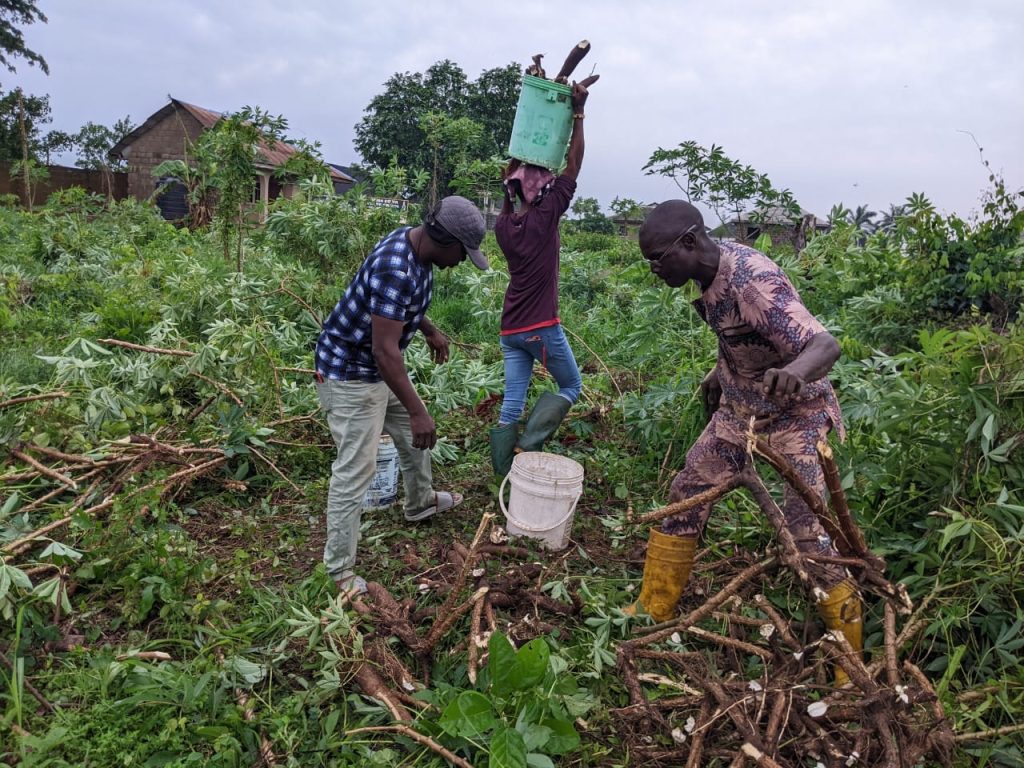The Yoruba people are an ethnic group predominantly found in Southwest, Nigeria, as well as parts of Benin and Togo. They have a rich cultural heritage and a long history of agriculture. Farming plays a significant role in the economic and social life of the Yoruba people, and it is closely tied to their cultural practices and beliefs. These are some of what farming entails:
Agriculture and farming techniques: Agriculture is the primary occupation of the Yoruba people. They engage in both subsistence and commercial farming, cultivating crops such as yams, cassava, maize, millet, beans, and various vegetables. Yoruba farmers use traditional farming techniques, including shifting cultivation, where they clear a patch of land, cultivate it for a few years, and then move on to another area, allowing the previously-cultivated land to regenerate. They also employ hoe farming, where the soil is tilled manually using hoes and other simple tools.
Sacred groves: The Yoruba people have a strong connection to nature and the spiritual realm. They believe in a pantheon of gods and ancestral spirits, who are associated with different natural elements. Sacred groves, known as “Oro” or “Igbo Irunmole”, are protected areas of forests dedicated to specific deities. These groves are considered sacred and are preserved as natural reserves. They serve as important sites for religious ceremonies, cultural practices, and rituals, and also provide a sanctuary for biodiversity.
Festivals and celebrations: Festivals are an integral part of Yoruba culture, and many of them are connected to farming and agriculture. The most prominent agricultural festival is the “Oko” or “Igbein” festival, which celebrates the harvest season. During this festival, farmers offer prayers and sacrifices to the gods of fertility and prosperity, seeking blessings for abundant crops in the coming year. The festival involves feasting, music, dance, and traditional performances.
Traditional crafts and artwork: Yoruba culture is renowned for its intricate artwork and craftsmanship. Traditional crafts such as weaving, pottery, woodcarving, and beadwork are often intertwined with farming and agricultural themes. For example, woven textiles known as “Aso Oke” often depict motifs related to farming, such as plants, animals, and agricultural tools. These crafts play an essential role in cultural expression, and they are also economically significant, as they are traded and sold; both locally and internationally.
Oral traditions and proverbs: The Yoruba people have a rich oral tradition that encompasses myths, legends, folktales, and proverbs. Many of these oral narratives revolve around agricultural practices, emphasising the importance of hard work, patience, and cooperation within the community. Proverbs, in particular, are widely used to convey wisdom and moral lessons related to farming and everyday life. They serve as a means of passing down knowledge and cultural values from one generation to the next. Overall, farming and agriculture are deeply intertwined with the culture and traditions of the Yoruba people. The practices, beliefs, and celebrations associated with agriculture have played a crucial role in shaping their ways of life and their understanding of the natural world.

